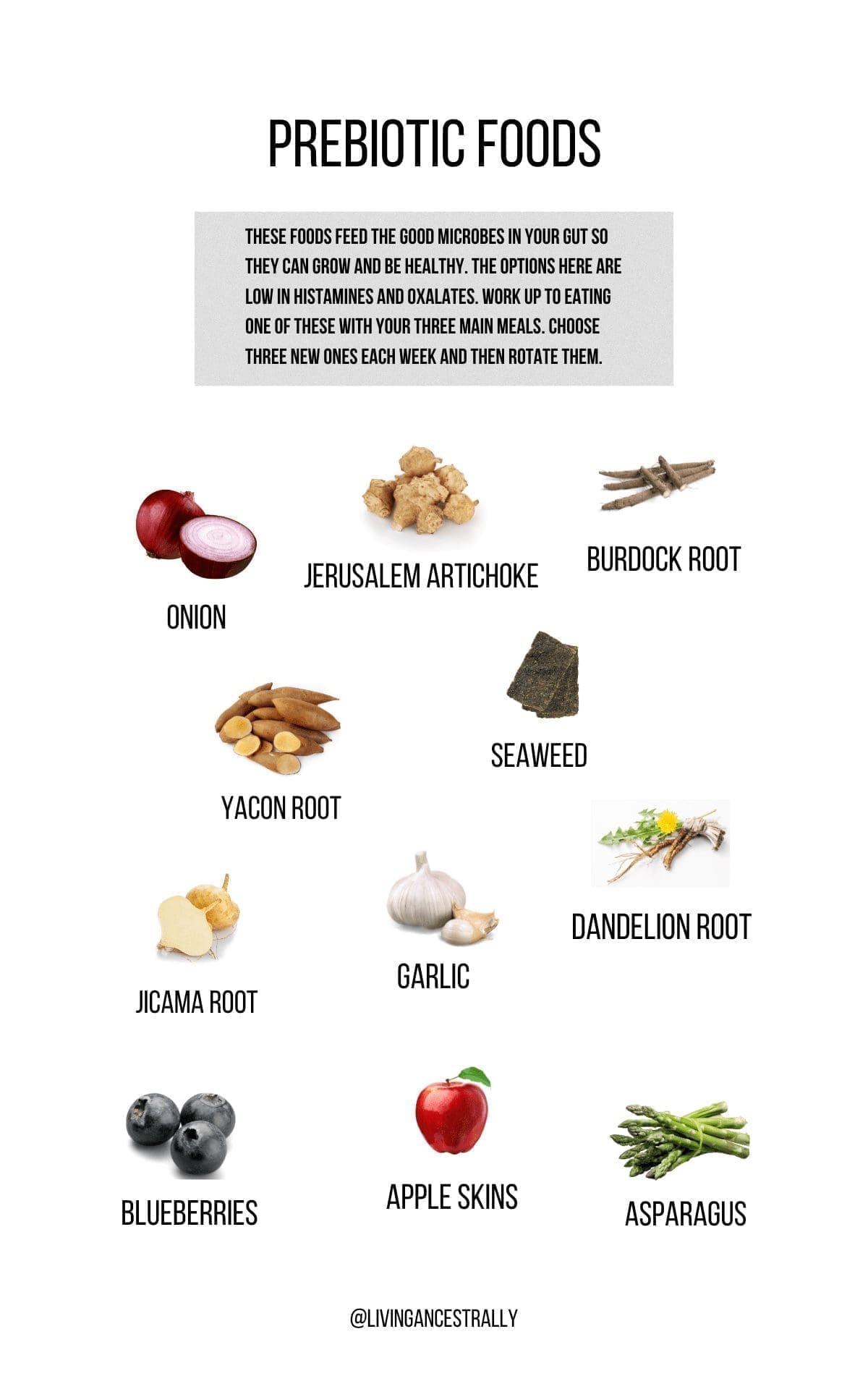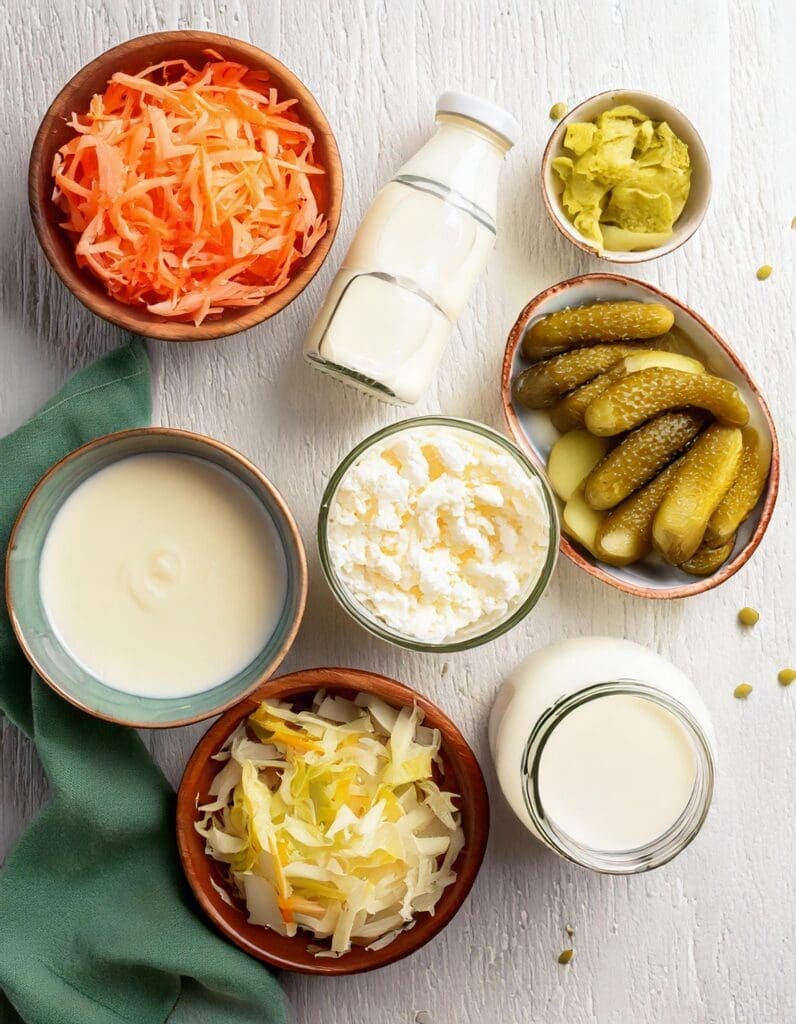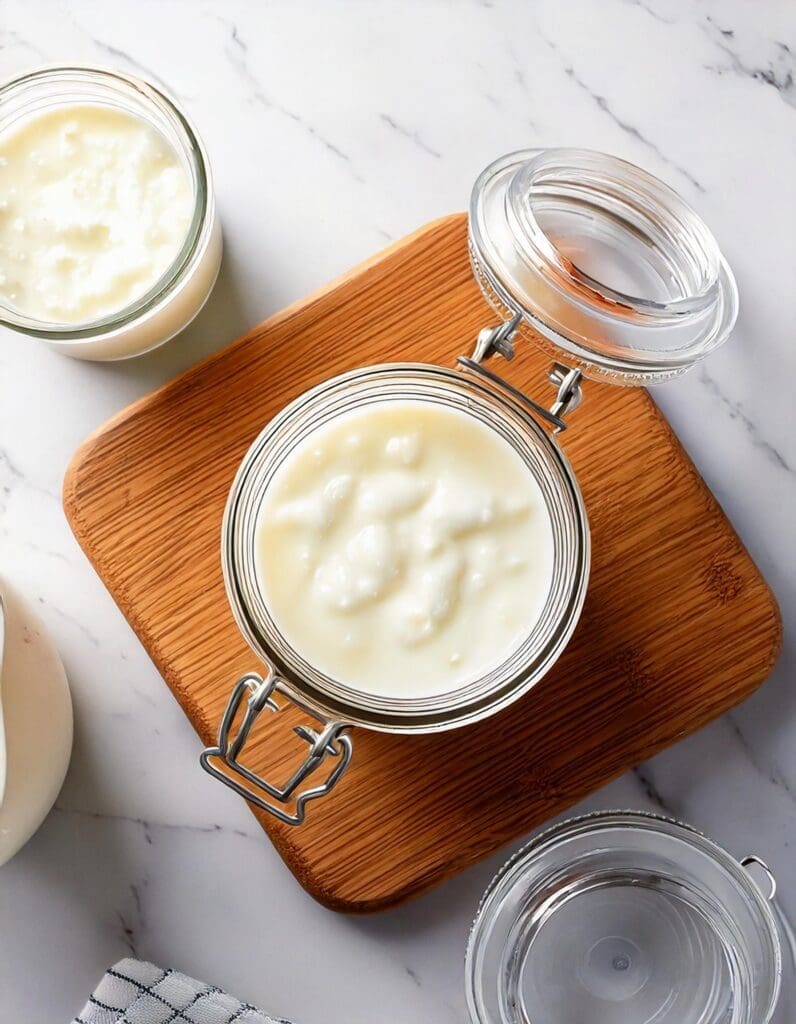Gut Health: How It Affects Your Body's Energy Levels
Gut health plays a major role in energy production and overall well-being. Our digestive system is teeming with microbes that are essential for the digestion of food, absorption of nutrients, and assimilation of minerals into our cells.
These microbes help us to break down complex carbohydrates, proteins, and fats, as well as make vitamins, and even produce hormones. Without them, we would not be able to access the energy from food for fuel or use certain vitamins for metabolic processes.
We’ll discuss simple steps you can take to improve your gut microbiome and help your body produce more energy.
The Importance of Gut Health
Having an unhealthy gut microbiome can lead to poor nutrient absorption, increased inflammation, and decreased production of energy-boosting compounds like B vitamins. Poor gut health can also drain your energy levels as it reduces the amount of usable calories you get out of foods. Symptoms associated with an unhealthy gut include bloating, gas, diarrhea, constipation, headaches, fatigue, and even sensitivities to certain foods.
Most experts agree today that many modern-day health conditions can be linked to poor gut health. Often, when gut health is improved, many people’s health issues improve.
The probiotics (healthy bacteria and yeast) in our guts do so much good for us! They fight off invaders such as harmful bacteria, yeast, and parasites, as well as regulate various processes in our bodies.
The bottom line is that it should be a priority for all of us to take purposeful steps toward better gut health.
How Diet Affects Gut Health
These tiny creatures in your digestive system help break down food, absorb nutrients and minerals, and even make hormones. They help us get energy from the food we eat and use minerals and vitamins for our bodies to work. Without these microbes, we wouldn’t be able to use food for energy.
Minerals and Microbial Health
The minerals within your body need to be balanced in order for your microbes to thrive. On the flip side, your microbes help your minerals work properly.
Minerals such as magnesium, calcium, sodium, potassium, iodine, iron, copper, selenium, and zinc need to be thoughtfully consumed and managed in order for your microbes to be healthy.
Did you know that there are plant foods that inhibit mineral absorption?!
To be precise, there are chemicals that plants make that help defend them from creatures that try to eat them. These defense chemicals are often called plant anti-nutrients or plant toxins. Plant toxins affect different creatures in different ways. For larger creatures like us, they can cause negative digestive symptoms such as constipation, gas, or bloating, headaches, and body aches. These plant toxins can even block the minerals that we eat.
Nutrient-dense foods that are in their whole food forms and contain none to little plant anti-nutrients are what we are designed to eat. Let’s consider how ancestral people ate. They did not eat the highly-processed and highly-palatable foods that we have grown accustomed to nowadays.
Archeologists who have studied the remains of ancestral people have found that their gut microbes were a lot more diverse than ours are today. Keep in mind too that they had little to no chronic disease like we do.
One of the biggest tips we give clients is to ditch or only occasionally eat plant foods that contain lots of anti-nutrients. The biggest plant anti-nutrients that can cause damage in our bodies include oxalates, phytates, lectins, and gluten.
Eat Prebiotics for Gut Health
Prebiotics are non-digestible fibers that feed the beneficial bacteria in our gut, helping them to reproduce and thrive. They are found in a variety of foods including certain fruits, vegetables, grains, nuts, and seeds. However, we do not recommend relying on grains, nuts, and seeds for your prebiotic fiber.
These plant foods are generally higher in plant anti-nutrients than certain fruits and vegetables. Keep in mind that plant anti-nutrients will rob your body of energy. They are a waste of the calories you eat and should only be rarely consumed.
Many people with certain health conditions may want to completely remove prebiotic plant foods from their diet entirely for a short period of time. Doing so may be necessary in order to allow the body to lower inflammation, improve energy, and allow gut healing to occur.

Which Prebiotics are Lower in Plant Anti-Nutrients?
Fruits such as apple skins, oranges, and berries are all high in prebiotics. These fruits contain a dietary fiber called pectin which helps to increase the number of good bacteria in your gut.
We always recommend to clients to minimize the consumption of fruit to one serving a day, particularly if they are less active or have blood glucose regulation issues. Even though fruit is natural, it still contains sugar and is not a necessary part of anyone’s diet. If you are going to eat fruit, then reach for ones that are higher in prebiotic fibers.
Berries such as strawberries, blackberries, raspberries, and blueberries are rich in antioxidants and provide a powerful dose of prebiotic fiber. Many of these prebiotic fruits are lower in harmful plant chemicals, especially apples, oranges, and strawberries.
Vegetables like onions, garlic, leeks, Jerusalem artichokes, and asparagus are some of the best sources of prebiotics.
Onions contain high levels of two types of prebiotic fibers known as fructooligosaccharides (FOS) and inulin. The sugars found in onion act as food for beneficial bacteria like lactic acid bacteria.
Garlic is another great source of prebiotics with potent antibacterial properties that can help promote healthy digestion. All of these vegetables are lower in plant anti-nutrients so they may be suitable for the majority of people.
A few other plant foods that are high in prebiotic fibers are chicory root, dandelion root, psyllium husk, and acacia fiber.

Eating these nutrient-rich foods can help boost your gut health by providing essential nutrients for your microbiota while promoting better absorption of vitamins and minerals from other foods you eat. When possible, focus on the vegetable and herbal sources over the fruit sources for your prebiotic intake (as mentioned above).
Prebiotic foods can help keep your gut microbiome balanced for optimal health so be sure to include more into your diet if you can tolerate them.
Probiotics Boost Your Microbial Diversity
Probiotics play an important role in maintaining gut health, as they contain beneficial bacteria and yeast that crowd out unhealthy microbes. This is because the probiotic microbes essentially compete for resources within the gastrointestinal tract.

Probiotics support healthy digestion, reduce inflammation, improve nutrient absorption, and boost immunity by stimulating the production of natural antibodies that protect against disease-causing organisms.
Probiotics have also been linked to improved mental health, better sleep quality, and lower levels of stress hormones.
Foods High in Probiotics
Foods that contain a hefty amount of healthy microbes may help to balance out your gut flora. Many people may want to take a probiotic capsule in order to balance their microbiome. It’s easier and quicker for most people to just take a probiotic supplement. However, there are many foods that are high in probiotics.
✔️ Dairy Kefir
✔️ Water Kefir
✔️ Yogurt
✔️ Raw Cheese
✔️ Buttermilk
✔️ Raw Milk
✔️ Sauerkraut
✔️ Kimchi
✔️ Coconut Yogurt
All of the above foods are high in probiotics. Many of them are considered to be cultured and/or fermented foods.
Dairy kefir has been found to contain the most probiotic strains out of all probiotic-rich foods. Some dairy kefir batches may have as many as 62 strains of bacteria and yeast. That is way more than any probiotic supplement that you can buy!

We always recommend that people focus on whole foods FIRST before reaching for supplements.
Unfortunately, not everyone can tolerate cultured or fermented whole foods though.
In fact, some people experience negative reactions when they consume these foods. For instance, fermented foods can cause histamine reactions such as a runny nose or sneezing.
Others may experience headaches, fatigue, and/or bloating, gas, and constipation. These people should avoid probiotic-rich foods for a period of time to heal their gut. Most likely, the lining of their guts has become damaged over time. Tiny holes in the gut lining can be created by inflammatory foods, stress, pesticides found in food, environmental toxins, and chronic lack of sleep.
For those who can tolerate probiotic foods, try eating just one of the probiotic-rich foods from the list above. Slowly, add in a second small serving of a different probiotic food as you can tolerate it. Finally, once you tolerate the second serving just fine then add in a third small serving of a different probiotic food with your third meal of the day. By doing so, you’ll be flooding your body with helpful bacteria and yeast at each meal!
We do not recommend increasing the probiotics you eat too quickly. You will most likely experience negative gastrointestinal issues since you’re changing the balance of microbes in your gut. To be safe, start low and go slow when increasing probiotic consumption,
Probiotic Supplements Worth Considering
Probiotic supplements may be necessary for people who are not able to eat probiotic-rich foods due to the reasons mentioned in the previous section. We’ve found that once people heal the lining of their gut, they may be able to add probiotic foods back in. However, until then, these probiotic supplements may be worth considering:
It’s vital to keep the microbes in your gut well-balanced. As strange as it may sound, they need nutrients in order to thrive and have energy, just like we do. We like to say, “Whole food first, supplements second.” Supplementation is necessary for some people. Evaluate if that is the best option for you.
Adding probiotics into your diet through probiotic-rich foods OR by taking a probiotic supplement is often necessary in order to increase the healthy microbes in your body.
The Effects of Poor Gut Health on Energy Production
The effects of poor gut health on energy production are far-reaching and can have a substantial impact on how we feel throughout the day. Poor gut health can lead to problems such as bloating, gas, constipation, diarrhea, and even nutrient deficiencies.
When the balance of bacteria in our digestive system is disturbed, it can lead to an imbalance of nutrients that our bodies need for energy production. This can lead to general fatigue, decreased cognitive performance, and even chronic fatigue syndrome.
Additionally, poor gut health can affect the absorption of vitamins and minerals that are essential for optimal energy production. For example, if the levels of vitamin B12 become depleted due to a lack of good bacteria in the gut, this can cause a decrease in energy production as well as cognitive decline.
Poor gut health has also been linked to imbalances in other important vitamins and minerals such as copper, iron, zinc, and magnesium which all play an important role in energy metabolism.
Additionally, research has shown that poor gut health may be linked to poor mental health through its effect on neurotransmitters such as serotonin. This is because our digestive system produces many hormones that help regulate mood. If these hormones are out of balance due to an unhealthy microbiome or lack of good bacteria within the digestive tract then this could result in decreased moods and feelings of fatigue and exhaustion.
Sunlight: A Potent Gut Microbe Booster
Sunlight also plays an important role in the health of our gut microbes. Just like with humans, microbes in the human body require sunlight in order to thrive. Research has actually found that sunlight can stimulate the growth of beneficial bacteria and help to reduce levels of harmful bacteria.
Sunlight and Bifidobacteria
Exposure to sunlight has been linked with increased levels of bifidobacteria, a type of beneficial bacteria found in the digestive tract which helps to break down complex carbohydrates and synthesize vitamins.
Sunlight also helps to reduce levels of pathogenic bacteria such as Clostridium difficile (C. diff), which is associated with inflammatory bowel disease and other digestive disorders.
Sunlight and Vitamin D
Exposure to sunlight is also important for activating the vitamin D within our bodies, which is essential for optimal gut health and immunity.
Vitamin D helps our bodies produce antimicrobial peptides which are responsible for fighting off pathogens that can cause damage to our gastrointestinal system.
Additionally, vitamin D regulates the production of mucin in our digestive tract, a key element for maintaining a healthy microbiome and promoting the absorption of nutrients from food.

Sunlight and Serotonin
Finally, sunlight exposure has been shown to increase levels of serotonin in the body, helping us feel more energized and positive throughout the day.
Serotonin is an important neurotransmitter involved in regulating our moods and feelings. Poor gut health can affect its production so increasing this hormone through exposure to natural light can be a great way to support overall well-being and energy levels.
Simple Steps to Improve Your Gut Microbiome and Boost Energy Levels
To keep our gut microbiome healthy and functioning properly, there are a few steps you can take to improve your gut health and boost your energy levels. By following these simple steps to improve your gut microbiome you can truly feel more energized throughout the day!
How can we have a healthy gut?
Let’s face it. Many of us have damaged gut microbiomes due to harmful chemicals in our food and our environment, over-the-counter and prescription medications, highly processed foods, overconsumption of sugar, high alcohol consumption, lack of sunlight, and much more.
The good news is that our guts can be repaired. It may take months or even years to achieve full recovery, but there are simple steps we can all take in order to improve our gut health. Here are a few ideas:
✔️ Sunlight – Plan to get morning and afternoon sunlight. Just 10 minutes of direct morning sunlight (before 10 AM) and 10 minutes of direct afternoon sunlight can do wonders for most people. Walking in and out of your house, car, or workplace isn’t enough. Make it a habit of getting 10 full minutes in the morning and 10 full minutes in the afternoon. There should be no need for sunscreen for that short period of time. Sunscreen will reduce many of the benefits of sunlight. Your microbes need sunlight in order to thrive!
✔️ Limit Plant Anti-Nutrients – Many of the chemicals that plants produce to defend themselves will rob your body of nutrients. Focus on eating them on occasion as ancestral people did. Plants were seen as “survival foods” or garnishes to animal-based dishes. Focus on eating plenty of animal-based protein (around 0.8-1 gram of protein per pound of body weight), healthy fats, and limited carbohydrates. You’ll feel full and be filling your body with bioavailable vitamins and minerals.
✔️ Prebiotics – Focus on eating low-inflammation prebiotic foods to feed the microbes in your gut. Research which prebiotics are lower in plant toxins (and make you feel good) and eat a variety of those every week.
✔️ Probiotics – Consume water kefir, dairy kefir, kimchi, sauerkraut, raw cheese, and/or raw milk on a regular basis. Eating a small amount of probiotic-rich food at each meal should add plenty of probiotics to your gut. Start with just one serving of a probiotic food each day until your body adjusts. Slowly increase until you are eating a probiotic food at each meal.
✔️ Minerals and Vitamins – Your gut microbes stay healthy when you eat highly absorbable nutrients. As already mentioned, animal foods are the best sources of bioavailable nutrients that your body will actually absorb. There are not any toxins that steal your nutrients within animal foods.
✔️ Soak, Sprout, and Ferment – These three methods greatly reduce certain plant anti-nutrients. We always like to consider how ancestral people ate. They hunted animals and foraged for plant foods. The main bulk of the food they ate was animal food. These traditional cultures also ate seasonally so they were not exposed to the same plant foods all throughout the year. Eating that way helped them have diverse and healthy microbiomes that were not affected by the same plant toxins. They also lowered plant toxins in the plant foods they ate by soaking, sprouting, and fermenting their food. We should be doing the same thing with the plant food that we eat.
The Bottom Line
Good gut health is essential for energy production and overall well-being. Our digestive system contains a variety of microbes that help us to break down complex carbohydrates, proteins, and fats; synthesize vitamins; and even produce hormones.
Without the assistance of these bacteria, we would not be able to access the energy from food or use certain vitamins for metabolic processes.
If you want to improve your gut health and increase your energy levels, focus on eating nutritious foods rich in probiotics as well as prebiotics that feed the beneficial bacteria in our intestines. Also focusing on exercising regularly, increasing sunlight exposure, reducing stress levels through relaxation techniques such as yoga or meditation, getting enough quality sleep each night, and eating vitamin-rich and mineral-rich foods can also help promote good gut health.
Start slowly by focusing on only one to two of the steps mentioned in this article. Become proficient in those habits before adding one to two more of the steps. Before you know it, your gut microbes will go to work for you in keeping you healthy. By taking care of our bodies with proper nutrition and lifestyle habits we can optimize our digestion process so it works more efficiently which will lead to increased energy production.
Please note that A Hair Mineral Analysis (HTMA) is not intended to diagnose, treat, cure, reverse, or prevent any disease. It is not intended to replace any other medical test(s) that may be prescribed by your medical doctor.
